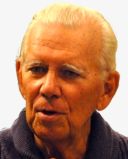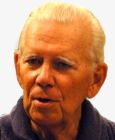
Happiness
Ridding Happiness Contaminants 9: Addictions and Compulsions
Three powerful strategies to getting started getting stopped
Posted July 25, 2016

In my last blog, I distinguished between an addiction and a compulsion. When a person has an addiction, that person's body craves some substance such that there is a physical dependency; without the substance, withdrawal symptoms develop which can be very painful. With a compulsion, there is no physical dependency, but with a strong psychological desire for some substance (e.g., alcohol, cocaine, marijuana) or activity (e.g., gambling, binge eating, shopping) that a person feels compelled to satisfy. When denied the compulsive object, this person will experience such emotional pain as anxiety or panic, but no physical pain.
Whether an individual possesses an addiction or a compulsion, there almost always exists deep fear of experiencing the pain that comes from being denied the substance or activity. I think of forty-three-year-old Sarah, physically dependent on and psychologically compelled to consume alcohol. Unwilling to maintain sobriety for even a day, she told me, “I'll do anything to avoid going through the agony of withdrawal.” Then there is thirty-seven-year-old Gary who stated: “The idea of facing life raw, having my anxiety without the calming effect of my marijuana, scares me more than I can say.”
The fear of experiencing the physical and/or the emotional pain of going without the addictive or compulsive substance or activity can provide quite a barrier to recovery. I have found that without overcoming this barrier, recovery is next to impossible. So, through the case study of Bob, who I mentioned briefly in my June 1, 2016 introductory blog on ridding addictive behavior, I’ll share with you the necessary first steps on the road to recovery. If you want to rid yourself of either an addiction or a compulsion, you would be wise to master these strategies as did Bob, perhaps with the support of a competent addiction counselor and/or cognitive behavior therapist.
The Case of Bob
Twenty-four-year-old Bob came into my office and plopped his six foot four inch, two hundred and twenty pound body down on my couch. Blonde, handsome, and strapping, he looked like he could have been a star linebacker on his college football team.
But his story was anything but glamorous or glorious. He told me about one life failure after another, all because of his addiction to cocaine. He dropped out of college, not once but twice, failed to qualify for military service, lost a girlfriend whom he deeply loved, could hold down no job, and was recently threatened by his parents with being thrown out of their home. When I first laid eyes on him, he had already failed to give up cocaine through the competent help of three out-patient psychotherapists and two thirty-day in-patient programs.
I knew that I had quite a challenge ahead of me. While Bob's recovery rested on his shoulders, not mine, I knew I needed to somehow help him find the motivation and purpose to somehow accomplish what he had previously found impossible – stop using cocaine, pure and simple.
Here's what I did to I help Bob to start to stop using cocaine. Whatever your addiction or compulsion might be, I urge you to do what Bob did. He succeeded and so can you. But only if you master the getting started strategies described below. If you do, you can, as did Bob, get started getting stopped.
Strategy One: Cost-Benefit Analysis, Supersized. At the end of his first therapy session, I gave Bob the assignment of compiling a comprehensive list of all the benefits/pleasures and all the costs/pains of both doing and not doing cocaine. I emphasized to him that his recovery absolutely depended on this assignment and urged him to consult with whomever he wanted to complete as comprehensive a list as possible.
Figure 1
Bob’s Pleasure/Pain Analysis
Doing Cocaine
Benefits/Pleasures Costs/Pains
• The unbelievable feel good • Will never amount to anything
• Women seek me out • Parents will disown me
• The thrill of the score • No decent woman would have me
• Dulls my pain • Lose my self-respect
• Part of my social network • Missed opportunities for closeness
Not Doing Cocaine
Benefits/Pleasures Costs/Pains
• Potential for a great life • Face life without crutch
• Save tons of money • Loss of some friends
• Keep love/loyalty of family • Loss of cocaine high
• Never have to hide or pretend • Loss of thrill of score
• Never have to look over my shoulder • No escape hatch
With fingers crossed, I looked forward to what Bob brought to our next session. I was not disappointed. He produced a profound list of benefits and costs, as illustrated in Figure 1.
Next came the moment of truth. With as much gravity as I could muster, I then asked Bob whether, when he thought of doing cocaine, he thought of the pleasures or the pains. “The pleasures, of course,” he responded without hesitation. Reversing the question, I then asked him, when he thought about not doing cocaine, did he think about the pains or the pleasures. “The pains” came immediately out of his mouth.
“There you have it,” I said to him, as emphatically as I could, with my eyes fixed on his. “You'll never stop using as long as you let pleasure and pain use you like this. You associate so much pleasure to using cocaine and so much pain to not using it that all your motivation is behind using and none behind not using.”
“Wow!” he said, completely getting it.
“Clearly, Bob,” I said, “you need to reverse your pleasure-pain association by intimately connecting pain to doing cocaine and pleasure to not doing it. Otherwise, your goose is cooked.”
Through the rest of this first session, Bob and I developed strategies for him to use in leveraging pleasure and pain in the service of not doing cocaine. He came up with two practical ideas, both of which made use of a 4 x 6 inch card, the profound pain of doing cocaine typed on one side, and the profound pleasure of not doing cocaine on the other. One strategy was to meditate six times a day, five minutes at a time, on the contents of both sides of the card. The second strategy was to refer to this card anytime he felt tempted to use cocaine.
We parted with me challenging Bob to abstain from cocaine until our next appointment, one week off. He committed to do so.
Strategy Two: Give Up The “I’m An Addict” Mentality. I know this is blasphemy to stalwart twelve-step devotees. But, while I understand that such a self-definition can keep one ever-alert to the temptation to relapse, I have found that defining oneself as an addict can have quite deleterious repercussions to recovery. I therefore counsel my patients to relinquish this disparaging self-labeling.
Let's get back to Bob. When I asked him how he felt when he thought of himself as “a cocaine addict,” he said he felt ashamed.
“What's the impact of feeling ashamed on you?” I said.
“It drives me to not want to think about any of this stuff, to just avoid it,” he said. “Who wants to think of himself as a lowlife addict?”
“So, what does the label do to your self-confidence in being able to kick the habit?”
“It kills it,” he said, with wonder in his eyes. “That's amazing, I've never really realized that I don’t have confidence that I can beat cocaine. You're the first person to point this out to me.”
“Well, yeah,” I said, “for, after all, how could an addict not use when he thinks of himself as a lowlife addict. Right?”
“Yeah.”
“Well, maybe we better get you to see how illogical and untrue it is for you to call yourself an addict. You have an addiction, an illness that has a pretty damn powerful effect on you, but you're not an addict. You don't have to become another person, only stop doing this stupid, self-destructive thing. Right?”
“Right!” he said.
Bob and I then spent the rest of that session detaching who he was as a person from what he did. We went over and over the illogic of it: you are so much more than this one thing you do; you are the self that does what you do, but you are not any one or even all of the things you do; you can damn what you do, but you never have to damn yourself; you have this weakness, but you are not a weak person.
While working on both the pleasure – pain and the self re-definition strategies, I also strongly urged Bob to seek immediate and massive support. This he did. See below.
Strategy Three: Get Massive Support. I said in the last blog that even the Lone Ranger had Tonto. The more support one has, the more likely one is to ward off temptation. To this end, Bob started attending NA meetings a minimum of three times per week and even encouraged his parents to participate in Al-Anon. He secured a sponsor with whom he met weekly. He continued his psychotherapy with me so that we could correct the psychological variables that compelled him to cope with his life's challenges and frustrations in a healthy way instead of the unhealthy route of using cocaine. He enlisted his friends in supporting him. He found a job.
I was quite pleased with Bob's efforts at getting started getting stopped. He had by this time not used cocaine for three weeks. I looked forward to forging ahead with his treatment in our next session. My goal would be to help him begin the work of getting staying stopped. Those strategies come in the next blog. Tune in.
Going Forward
Whether you struggle with some addiction or compulsion, or with some compulsory habit you'd find better to be rid of, you can use the three strategies to getting started getting stopped illustrated through the case of Bob. Please do so, though I caution you that this blog is no substitute for real, live, honest-to-goodness therapy with a competent professional. If you struggle with an addiction or a compulsion, do yourself a favor and reach out.
Till my next blog, remember that you can contact me at anytime. By all means, live healthy, happy, and with passion.
Russell Grieger, Ph.D. is a licensed clinical psychologist in private practice in Charlottesville, Virginia. The author of several self-help books, all designed to empower people to create a life they love to live, he invites you to check out his new relationship happiness book, The Couples Therapy Companion; A Cognitive Behavior Workbook. You may contact Dr. Grieger for questions or for more information at grieger@cstone.net



